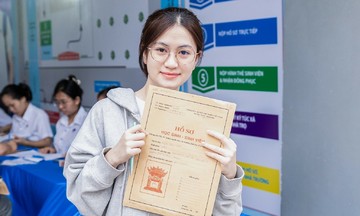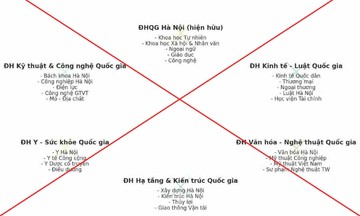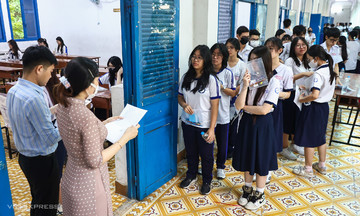The product, named RiceProtect, earned six students—Le Tan Phong, Lai Minh Nhat Anh, Nguyen Hoang Duc Huy, Le Minh Khoi, Banh Khanh Linh, and Le Thi Hien Anh—second place in the Bach Khoa Innovation 2025 competition last August.
Team leader Tan Phong highlighted the unique aspect of the peppermint oil beads: their effectiveness in eradicating rice weevils while remaining safe for human health. Currently, there are no similar products on the market.
Phong explained that unlike traditional weevil control methods like using garlic, chili, or sun-drying, which have unproven efficacy and only address existing infestations, RiceProtect can eliminate weevils as soon as they hatch.
"In practical tests, we observed nearly 100% weevil elimination within 24 hours, even at low concentrations of about 1 gram of beads per liter of air," Phong said.
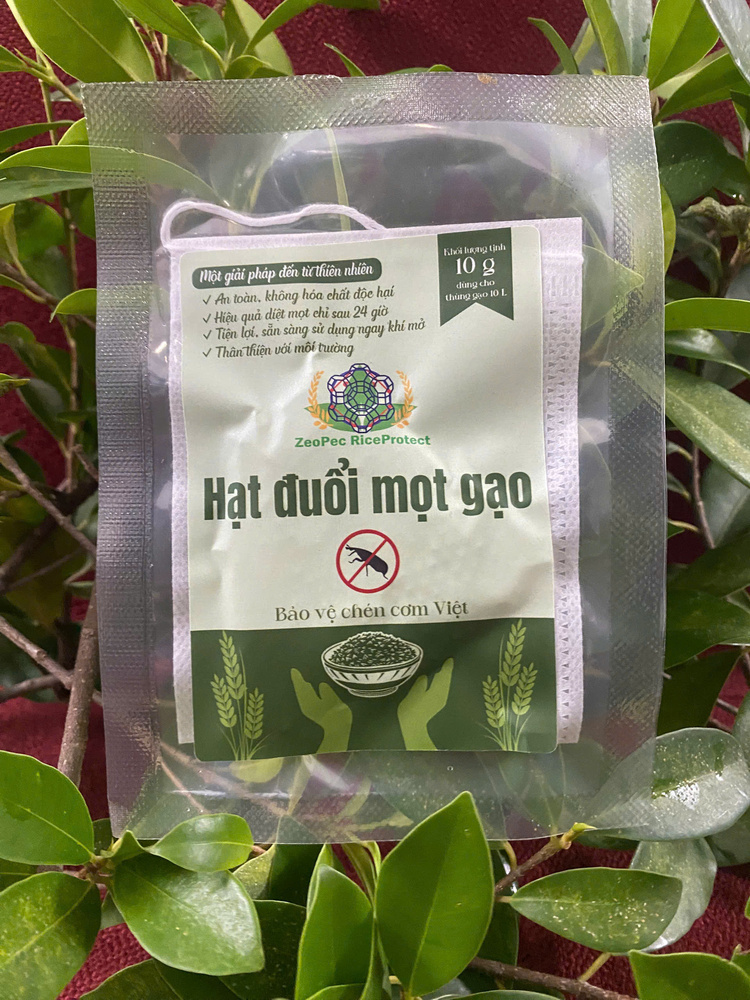 |
The rice weevil protection beads developed by students at Ho Chi Minh City University of Technology. Photo: Provided by the students
The team's idea stemmed from Phong and Anh's graduation project, which researched bio-pesticides derived from essential oils. Phong noticed the issue of weevils infesting stored rice. Traditional remedies proved ineffective for households, while rice weevils cause significant losses for import-export companies.
To prevent weevil infestations, companies often resort to pesticides within permitted limits. However, this poses a risk in some stringent markets with rigorous import inspections.
Building on their graduation project, Phong and Anh recruited like-minded peers to research a safe, health-friendly weevil control product. Their research, including national and international articles, revealed that essential oils have been studied for controlling various insect pests, including rice weevils and red flour beetles.
Phong discovered that menthol can inhibit the nervous systems of rice weevils and red flour beetles, causing them to lose their appetite and eventually die. Further research showed that the essential oil of Vietnamese Balm (a common plant in Vietnam) is rich in menthol and menthone, potent weevil toxins.
However, essential oils are volatile and unstable in air. Their advisor suggested absorbing the oil into a "hollow bead" material. Initially, the team found a clay-based powder capable of absorbing the oil, which they then scattered into the rice. However, this method contaminated the rice and required laborious removal.
After nearly a year of research, the team developed 3 mm pectin-zeolite beads from the aforementioned powder combined with pectin, a binding agent extractable from fruit peels.
The next challenge was absorbing the peppermint oil into these beads. Initial attempts, including directly dipping the beads into the oil or vaporizing the oil for absorption, yielded poor retention.
Serendipitously, the team stumbled upon a study on absorbing lavender oil into zeolite using vacuum evaporation, which they successfully implemented.
"For the final phase, the practical test, we needed a large quantity of rice weevils. I went to a rice shop, got some old rice with weevils, and bred nearly 1,000 for the experiment. Almost 100% of the weevils were eliminated within 24 hours," Phong recounted.
 |
The "hollow beads" before and after absorbing peppermint oil. Photo: Provided by the students
Associate Professor Dr. Nguyen Quang Long, Head of the Chemical Engineering Department at Ho Chi Minh City University of Technology, praised the product's significant potential. Currently, the oil beads protect rice, but future adjustments to the scent could protect other grains and cereals from insect pests.
With its natural fragrance, the product can also freshen indoor spaces or cars.
According to Associate Professor Dr. Long, the team currently uses commercial pectin and pure zeolite for production. To reduce costs and enhance competitiveness, they should explore using fruit peels (for pectin extraction) and kaolin clay (for zeolite creation). While research on these methods exists, integration and comprehensive assessment are necessary. He also noted that the loading capacity and encapsulation efficiency of the essential oil could be further optimized.
"They need to improve these aspects to minimize input materials. Furthermore, researching solvent recovery after absorption could save resources and reduce environmental impact," Dr. Long said. "The reusability of the pectin-zeolite beads also warrants further investigation."
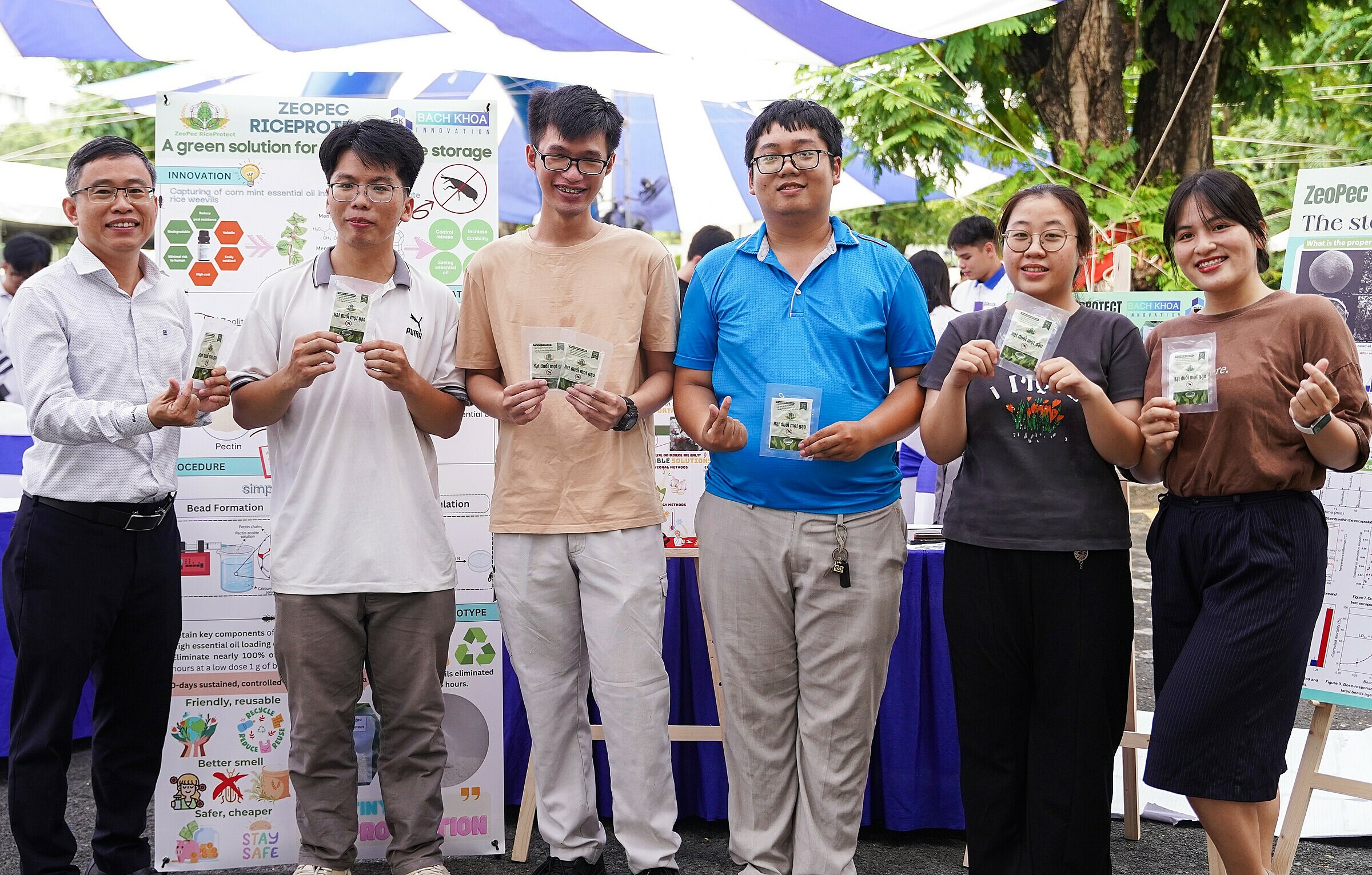 |
Phong's team and Dr. Long presenting the product at the Bach Khoa Innovation competition in August. Photo: Provided by the students
Phong explained that the team initially targeted households and retail rice packers. However, after meeting an agricultural export company, they recognized the product's potential to replace quarantine chemicals, which face increasing restrictions.
"This motivates us to continue improving the product," he said.
A 10g bag priced at around 20,000 VND for a 10-liter rice container is currently expensive, limiting accessibility for a broader customer base, according to Phong.
"We'll optimize the zeolite production, bead formation, and oil absorption processes, aiming to halve the cost," Phong stated. Another goal is to reduce the peppermint concentration while maintaining efficacy, as many prefer the original rice scent.
Le Nguyen





